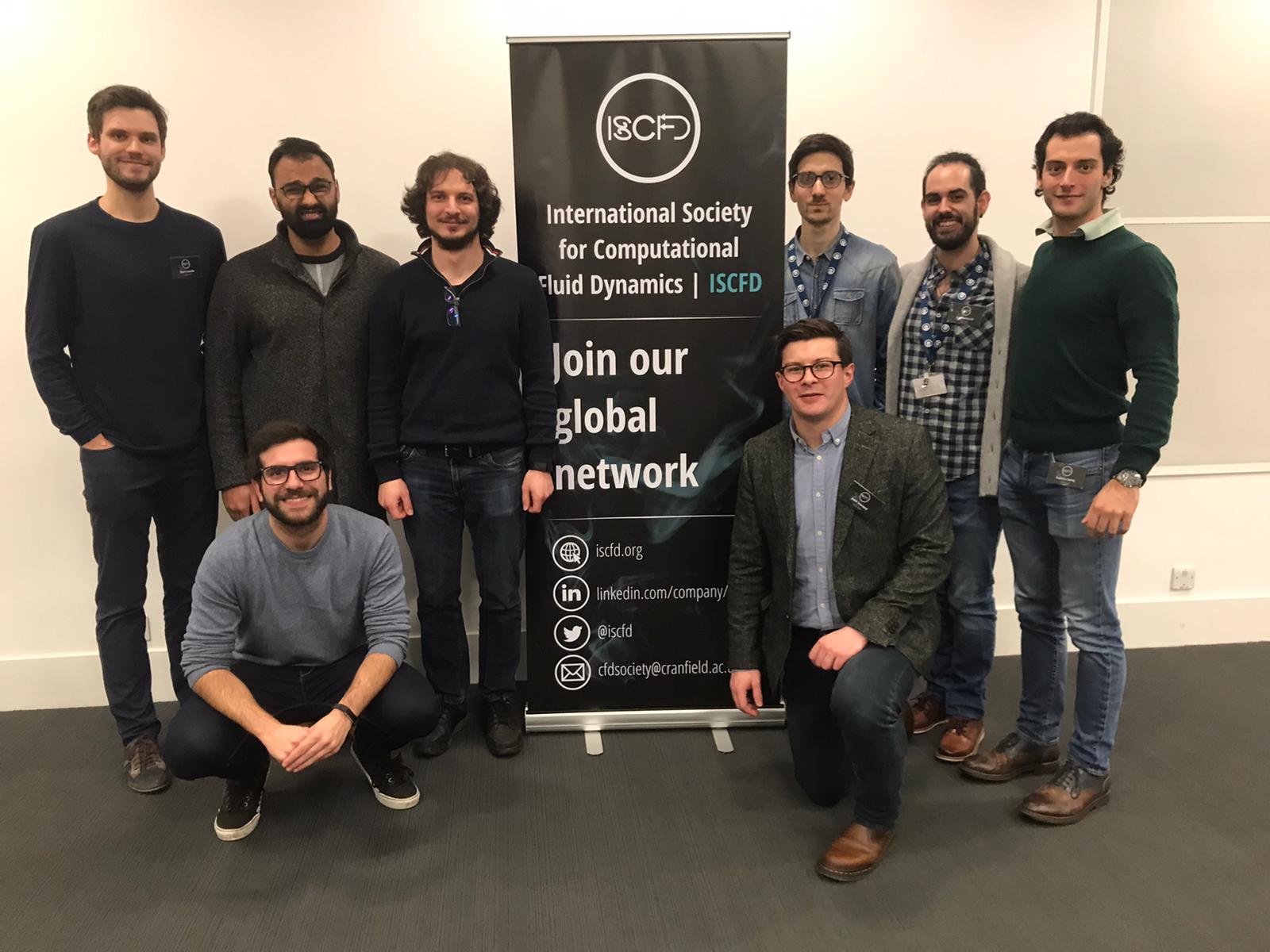The International Society for Computational Fluid Dynamics (ISCFD): who, what, where and why?
04/12/2020

Introducing ISCFD, the one-stop society for all your fluidic needs. If you’re not familiar with Computational Fluid Dynamics (CFD), simply put it’s the discipline of analysing and visualising fluid flow for scientific and engineering problems. If you think it sounds appealing to you, you’re right, it is, and we think so too, please read on.

The Cranfield Student Association provides the opportunity to participate in clubs and societies which have been set-up and are run by students, such as the International Society for Computational Fluid Dynamics.

First and foremost, ISCFD is a sanctuary. The ISCFD was founded by two passionate PhD researchers at Cranfield; Natan Zawadzki and Parash Agarwal, with a vision to create a common framework of interaction between students, researchers, academics and industry in the field of CFD. The ISCFD is now run by an enthusiastic team of computational fluid dynamists from varying backgrounds. It is a free platform to discuss and share ideas and research activities in the world of CFD as well as to engage with other like-minded professionals. We strive to enrich the research culture within the university, promote CFD and encourage the next generation of CFD experts.
Our popular ISCFD guest lectures are something we’re very proud of. We regularly invite a CFD expert from either academia or industry to showcase and present what’s going on in the CFD world. These lectures will take place online for the foreseeable future which means we can invite experts from literally anywhere around the globe. So far, we’ve hosted experts from Siemens, University of Cambridge, Jaguar Land Rover, University of Oxford, Rolls Royce, Technische Universitat Darmstadt, Convergent Science plus many more and we’re set to continue this trajectory for the following academic year. These lectures are an opportunity to gain perspective about what’s going on in this ever-changing field and obtain exclusive content not otherwise available to the general public.
We also provide a forum on LinkedIn which we encourage all members to join. This is an environment for discussion, whether you’re stuck with understanding a concept or you’re looking for an expert, the community can help you out as you’ll have access to a wide-reaching and engaging CFD cohort.

If the ISCFD sounds like it’s something for you, please follow us on LinkedIn (linkedin.com/company/iscfd) and Twitter (@iscfd) for our latest news and ISCFD guest lecture announcements. Keep an eye on our website too which will be up and running very soon (iscfd.org)!
Categories & Tags:
Leave a comment on this post:
You might also like…
Keren Tuv: My Cranfield experience studying Renewable Energy
Hello, my name is Keren, I am from London, UK, and I am studying Renewable Energy MSc. My journey to discovering Cranfield University began when I first decided to return to academia to pursue ...
3D Metal Manufacturing in space: A look into the future
David Rico Sierra, Research Fellow in Additive Manufacturing, was recently involved in an exciting project to manufacture parts using 3D printers in space. Here he reflects on his time working with Airbus in Toulouse… ...
A Legacy of Courage: From India to Britain, Three Generations Find Their Home
My story begins with my grandfather, who plucked up the courage to travel aboard at the age of 22 and start a new life in the UK. I don’t think he would have thought that ...
Cranfield to JLR: mastering mechatronics for a dream career
My name is Jerin Tom, and in 2023 I graduated from Cranfield with an MSc in Automotive Mechatronics. Originally from India, I've always been fascinated by the world of automobiles. Why Cranfield and the ...
Bringing the vision of advanced air mobility closer to reality
Experts at Cranfield University led by Professor Antonios Tsourdos, Head of the Autonomous and Cyber-Physical Systems Centre, are part of the Air Mobility Ecosystem Consortium (AMEC), which aims to demonstrate the commercial and operational ...
Using grey literature in your research: A short guide
As you research and write your thesis, you might come across, or be looking for, ‘grey literature’. This is quite simply material that is either unpublished, or published but not in a commercial form. Types ...






